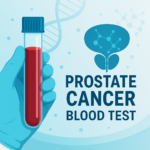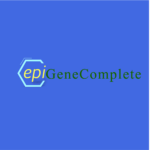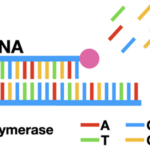Epigenetic clock test suggests that it is possible to reverse aging with a special intervention
What is the epigenetic clock? According to Wiki “An epigenetic clock is a biochemical test that can be used to measure age. The test is based on DNA methylation levels.”
Nine volunteers, aged 51 to 65, took a cocktail containing three common drugs daily during the year. The study’s goal was to examine whether it is possible to regenerate the thymus and fortify the immune system, which tends to deteriorate as we age. The medicinal cocktail contained – growth hormone as well as two anti-diabetic drugs. The growth hormone was previously shown as a remedy for the thymus, but it can also contribute to the development of diabetes. Therefore, to protect the volunteers from diabetes the cocktail also contained anti-diabetic agents: DHEA and metformin.
As a result of this treatment, a blood test demonstrated that the blood-cell count was rejuvenated in each of the participants. In seven participants, the thymus fat tissue was replaced with regenerated thymus tissue.
The researchers were curious about the “epigenetic age” of the participants and the impact of the treatment on their aging. They measured the “epigenetic age” by measuring DNA methylation (DNA methylation clock) in DNA from their blood cells. To their surprise, they found that not only the “epigenetic age” didn’t progress as fast as previously but that it was reversed by 2.5 years. In other words, the participants became two and a half years younger by this intervention.
This is the first case demonstrating the potential for reversibility of aging. It also demonstrates the value of DNA methylation clocks as serving as a measure of age and a call for change when the biological age accelerates. These preliminary data are based on only nine participants and require a more in-depth study on a large number of people. Nevertheless, this discovery could potentially revolutionize the field of aging and open the window of opportunity for reversing aging.
We asked one of the pioneers of the field of Epigenetics, Prof. Moshe Szyf for comments on this revolutionary study: “The tremendous potential of “epigenetics” is the idea of reversibility. While genetic changes are irreversible, epigenetic changes are potentially reversible. This study shows that even the most permanent feature of life, “aging” is reversible and possibly driven by epigenetic mechanisms. It is possible that measuring our “epigenetic age” or DNA methylation clock will become in the future a common practice in our general health management. Epigenetic age tests might provide in the future a guide for our general health and call to action for interventions that could extend our lives. DNA methylation clocks could assess the outcomes of these interventions and guide new and more potent interventions. “
References:
1. Gregory M. Fahy et al. Agig Cell. “Reversal of epigenetic aging and immunosenescent trends in humans.” doi: 10.1038/d41586-019-02638-w
2. First hint that body’s ‘biological age’ can be reversed
Recent Blog Posts
-
 13 Jun 2025MTL Epitherapeutics and RI-MUHC Develop Early Prostate Cancer Blood Test
13 Jun 2025MTL Epitherapeutics and RI-MUHC Develop Early Prostate Cancer Blood Test -
 11 Jan 2025EpiAge Research Publication Signals a New Era in Understanding Biological Aging
11 Jan 2025EpiAge Research Publication Signals a New Era in Understanding Biological Aging -
 18 Nov 2024EpiMedtech Global Announces FDA Registration of EPIAGE, the First Epigenetic Age Test Registered by the FDA
18 Nov 2024EpiMedtech Global Announces FDA Registration of EPIAGE, the First Epigenetic Age Test Registered by the FDA -
 18 Nov 2024EpiMedTech Global Validates Unique epiCervix HPV Combo Test for Cervical Cancer Detection
18 Nov 2024EpiMedTech Global Validates Unique epiCervix HPV Combo Test for Cervical Cancer Detection -
 31 Oct 2024HKG epiTherapeutics’ MetaGen Genetic Risk Assessment Test Receives FDA Registration, Now Available in the U.S.
31 Oct 2024HKG epiTherapeutics’ MetaGen Genetic Risk Assessment Test Receives FDA Registration, Now Available in the U.S. -
 31 Oct 2024EpiMedTech Global Launches epiGeneComplete: A Breakthrough Genetic and Epigenetic Test for Comprehensive Health Diagnostics
31 Oct 2024EpiMedTech Global Launches epiGeneComplete: A Breakthrough Genetic and Epigenetic Test for Comprehensive Health Diagnostics -
 30 Oct 2024Enhanced Early Detection of Liver Cancer
30 Oct 2024Enhanced Early Detection of Liver Cancer -
 08 Oct 2024Are Microarrays Still Reliable? How Next-Generation Sequencing Outperforms Traditional Methods
08 Oct 2024Are Microarrays Still Reliable? How Next-Generation Sequencing Outperforms Traditional Methods



